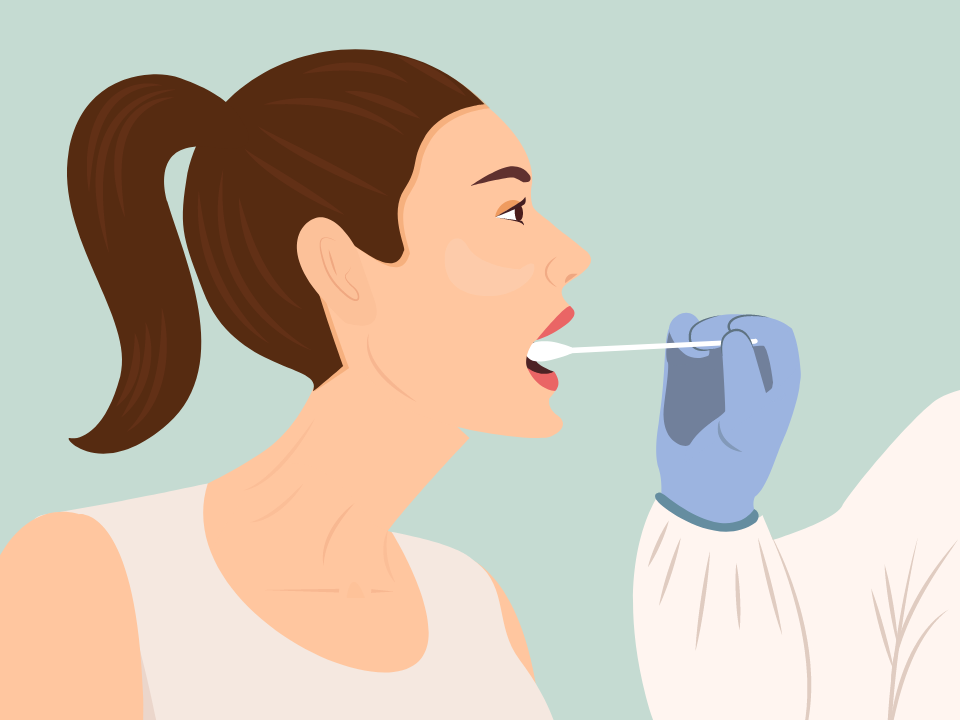Diabetes is a medical condition that affects how the body processes blood sugar, also referred to as glucose. Glucose is critical to the human body since cells use it as an energy form and it is the brain’s primary fuel source. Diabetes leads to an excess amount of sugar in the blood.
Serious health problems can result from too much sugar in your blood. That’s why good diabetes management is so critical to your health care.
- Type 1 – The body doesn’t produce insulin. You need insulin to remove glucose from the foods you consume. That glucose is turned into energy used by the body. A person with Type 1 diabetes needs to take insulin daily to live.
- Type 2 – The body doesn’t produce or use insulin effectively. People with Type 2 diabetes need to take pills or insulin to control their diabetes. Type 2 is also the most common of the three diabetes types.
- Gestational – This diabetes type develops in some women when they are pregnant. In most cases, it goes away on its own after the woman gives birth. The mother and child have a greater chance of developing diabetes later in life if the mother suffers from it while pregnant.
Diabetes is a serious health issue regardless of the type. But you can still learn how to manage diabetes with the right diabetes education.
How to Manage Diabetes at Home
There are plenty of oral health self-care practices you can perform at home that will help control the progression of your diabetes, such as:
The methods you implement at home help you control your diabetes without the use of medication.
Eating nutritious food is critical to your body’s overall health and is also a great way to control your blood sugar. Consult a medical professional or a nutritionist about creating a diabetes meal plan. To start, you can help get your blood sugar where it should be and prevent spikes by:
- Opting for foods that are lower in saturated fat, trans fat, sugar, and salt
- Adding more fruits and vegetables to your diet
- Eating foods that are fiber-rich
- Avoiding processed carbohydrates as they contain simple sugars that will spike your blood sugar
- Choosing complex carbohydrates instead as they take longer to digest and release their natural sugars slowly to avoid the blood sugar spike
- Drinking water instead of soda or juice—both of which are high in sugar
Making healthy food choices is an important part of how to reduce your blood sugar level.
Physical activity is a part of any healthy regimen. But it is especially important for those folks who suffer from diabetes.
Staying physically active offers numerous benefits, including controlling blood sugar levels while reducing the risk of heart disease and nerve damage. Other benefits include:
- Weight loss
- Maintaining a healthy weight
- Lowering LDL (“bad”) cholesterol
- Increasing HDL (“good”) cholesterol
- Controlling your blood pressure
- Sleeping better
- Feeling happier
- Memory enhancement
Starting an exercise routine can be challenging if you’re not sure how to go about it. For starters, consult your doctor about the best activity types for you, what activities you should avoid, and how to prepare.
Begin by finding an activity you enjoy. That’s a good way to ensure you stick to it. Then, start small. You don’t want to be too intense too fast if you’re not already regularly active. You can increase your activity level each time out to incrementally build up your intensity.
Finding an exercise partner and setting exercise goals are two ways to make sure you maintain your activity. Exercise tends to be more fun with a partner. And setting exercise goals gives you something to strive for. Reaching your goal is a good way to stay motivated.
If you struggle with motivation, try scheduling your exercise. Scheduling exercise on a regular basis helps make it part of your daily routine so that physical activity becomes a habit.
Aim for achieving at least 150 minutes of moderate to intense physical activity each week. Accomplish this by breaking it into manageable blocks of 20 to 25 minutes each outing. Good examples of these types of activities include swimming, biking, and walking briskly. Chores around the home like mowing the lawn and doing housework also accomplish the feat.
Manage Your Blood Glucose
Managing your blood glucose is a key to feeling better and successfully living with diabetes. There are plenty of benefits to maintaining your blood glucose as close to normal as possible. For starters, you’ll have more energy. You’ll also be less tired while noticing a decrease in thirst. Your body will also urinate less, heal better, and see a decrease in skin and bladder infections.
Successful glucose monitoring also reduces the risk of some serious health problems brought about by diabetes. These health risks include:
- Heart attack
- Stroke
- Sight issues including blindness
- Nerve damage includes numbness, tingling, and pain in your extremities
- Kidney problems
- Teeth and gum problems
There are other health aspects you should work on to maintain your health besides just your blood glucose.
There are three key readings you should maintain at healthy levels to minimize the chances of health issues such as a heart attack, stroke, or other diabetes-related matters. Focus on your A1C, your blood pressure, and your cholesterol.
The
A1C test is a blood test that measures your average glucose level over the past two to three months. High A1C levels can cause diabetes-related complications with your heart, blood vessels, kidneys, eyes, and feet. Your doctor should tell you how many times each year to have your A1C tested. People who meet their diabetes treatment goals usually have the test twice per year. An ideal A1C test level is below seven percent.
Blood pressure is defined as the force of your blood against your blood vessel walls. Having chronically high blood pressure puts you at risk for a heart attack, stroke, or eye and kidney damage. Your heart is forced to work harder than necessary when your blood pressure is too high.
People with diabetes should maintain blood pressure below 140/90. Consult your physician to see what blood pressure level you should strive for.
Your blood has two cholesterol levels: LDL and HDL.
LDL is the bad cholesterol that can clog blood vessels. Too much LDL cholesterol can lead to a heart attack or stroke.
HDL is the good cholesterol that aids in removing the LDL cholesterol from blood vessels. Ask your doctor what cholesterol levels—LDL and HDL—you should maintain.
How Diabetes Impacts your Teeth
Diabetes will wreak havoc on your oral health in a variety of ways if it isn’t brought under control.
For example, you can develop dry mouth. This is a condition that results from a decrease in your saliva level. Your teeth will be at a higher risk of cavities since saliva helps protect teeth by removing food particles that can lead to a buildup of plaque and bacteria.
Diabetes can also cause gingivitis—when your gums swell and bleed often. Gingivitis is the first stage of periodontal disease. Full-blown periodontal disease can destroy your gums, the tissues that hold your teeth in place, and even your jawbones.
Periodontal disease affects approximately 22 percent of people who have diabetes. Poor blood sugar control increases the risk of gum issues as people age and is the main reason that people with diabetes are at high risk for gum issues.
Infections from gum disease cause your blood sugar to rise. That leads to difficulties in controlling diabetes. So controlling your diabetes—which means your blood sugar level will be kept in check—is a major way to prevent the development of gum issues.
Additional mouth health issues brought about by diabetes include delayed wound healing, being susceptible to infections in the mouth, and problems with tasting food. Children who have diabetes might have teeth protrude at an earlier age than is typical.
How Your Dentist Can Help Manage Your Diabetes
Your dentist is a good ally when it comes to implementing good oral practices to help control your diabetes. That begins with regular checkups and cleanings.
Professional cleanings, along with practicing good oral hygiene, help lower your HbA1C level. The HbA1C is a lab test that determines your average blood sugar level from the previous three months. So it is a good indicator of how well you are controlling your diabetes.
Consult your dentist to discuss your questions about managing diabetes through oral health. Or use our Find a Dentist tool to find a dentist for all your oral care needs, including tips on managing your diabetes. You can read patient reviews, peruse staff bios, and schedule an appointment online with a click of your mouse.
Find your trusted, local dentist today!
- National Institute of Diabetes and Digestive and Kidney Diseases. (2016, January). 4 steps to manage your diabetes for life. https://www.niddk.nih.gov/health-information/diabetes/overview/managing-diabetes/4-steps
- American Diabetes Association. (n.d.). Diabetes and oral health. https://diabetes.org/health-wellness/keeping-your-mouth-healthy
- American Diabetes Association. (n.d.). It’s called the A1C test, and it’s a powerhouse. https://www.diabetes.org/diabetes/a1c
- Martin, L. (n.d.). Diabetes and your smile. Mouth Healthy. https://www.mouthhealthy.org/en/az-topics/d/diabetes
- National Institute of Dental and Craniofacial Research. (2018, July). Diabetes & oral health. https://www.nidcr.nih.gov/health-info/diabetes
- Centers for Disease Control and Prevention. (2021, May 7). Diabetes and oral health. https://www.cdc.gov/diabetes/diabetes-complications/diabetes-and-oral-health.html
- Centers for Disease Control and Prevention. (2022, March 9). Living with diabetes. https://www.cdc.gov/diabetes/living-with/
- Mayo Clinic Staff. (2020, October 30). Diabetes. Mayo Clinic. https://www.mayoclinic.org/diseases-conditions/diabetes/symptoms-causes/syc-20371444
Smile Generation blog articles are reviewed by a licensed dental professional before publishing. However, we present this information for educational purposes only with the intent to promote readers’ understanding of oral health and oral healthcare treatment options and technology. We do not intend for our blog content to substitute for professional dental care and clinical advice, diagnosis, or treatment planning provided by a licensed dental professional. Smile Generation always recommends seeking the advice of a dentist, physician, or other licensed healthcare professional for a dental or medical condition or treatment.





.png)


